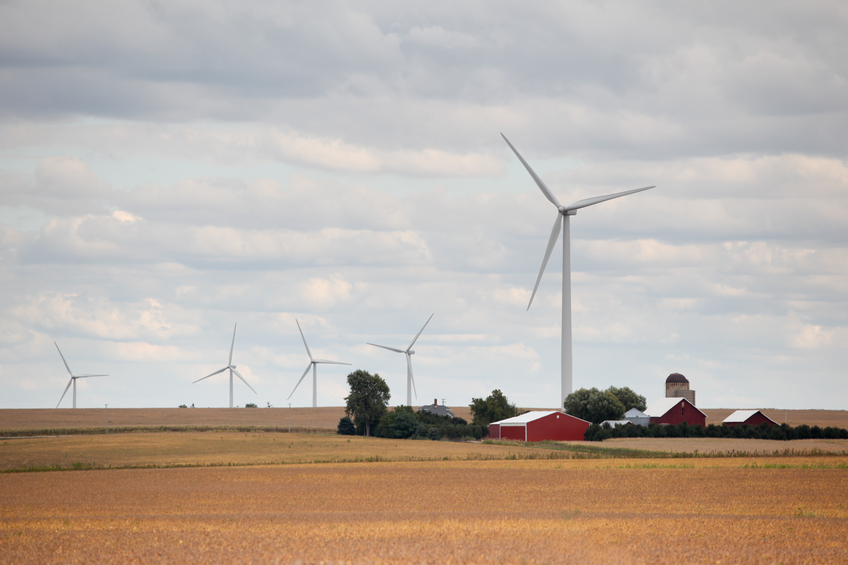The Maine chapter of the National Audubon Society (NAS) has withdrawn its request to intervene in a Maine Land Use Regulation Commission (LURC) hearing for UPC Wind's proposed Stetson Wind Project in Washington County, Maine – a move that represents the 100-year-old environmental conservation organization's decisive yet conditional support for wind power.
   "On balance, Audubon strongly supports wind power as a clean alternative energy source that reduces the threat of global warming," said Mike Daulton, director of conservation policy for NAS, in testimony on May 1 before the committee on natural resources and subcommittee on fisheries, wildlife and oceans. "Each individual wind project, however, has a unique set of circumstances and should be evaluated on its own merits."
   NAS chapters, such as Maine Audubon, take stances on wind power developments in their states and participate as stakeholders in project permitting processes. LURC received petitions in May from seven independent organizations, including Maine Audubon, for intervenor status in the proceedings for UPC's application to rezone 4,800 acres and obtain a preliminary development permit for the 57 MW Stetson facility. In its petition, Maine Audubon did not specify support for or opposition to the project, but its decision to withdraw the petition was due to the developer's willingness to address siting issues in the project proposal raised by Maine Audubon.
   "The developers had completed some initial pre-construction studies that were not intensive enough from our point of view," says Jody Jones, wildlife ecologist for Maine Audubon. "They agreed to increase the number of days for the study, and thus increase the sample size, to determine the baseline data for migratory species passing over the project."
   In addition, Maine Audubon worked with the developers to establish a decommissioning plan for the project and to identify the extent of cut-and-fill impacts at the project site.
   "The Stetson site is not located in a protected area, but we wanted to make sure, from a precedence-setting perspective, that there was clear guidance on the types of information that should be provided in order to obtain an understanding of the changes that will be happening to a project's landscape."
   UPC successfully developed the 42 MW Mars Hill project – Maine's only operating MW-scale wind farm – and LURC is considering project applications for TransCanada Maine Wind Development Inc.'s 132 MW Kibby Mountain project and the Redington Wind Farm proposed by Maine Mountain Power LLC (MMP), a joint venture of Endless Energy Co. and Edison Mission Group.
   Maine Audubon worked with TransCanada from the inception of the Kibby Mountain Wind Farm and has expressed its support for the project, but it opposes the Redington Wind Farm despite the developer's recent project amendments. As originally proposed, the Redington Wind Farm included 30 3 MW wind turbines sited on Black Nubble Mountain and the Redington Pond Range. In a 2006 statement of its opposition to the Redington project, Maine Audubon cited excessive risks of the project to "a number of ecological, recreational and scenic resources of state and national significance."
   MMP submitted a revised rezoning petition to LURC in early July that reduces the project to 18 turbines to be sited only on Black Nubble Mountain. Natural Resources Council of Maine issued a statement in support of the revision, noting that the revision includes a commitment by the developers to preserve Redington Pond Range if a permit is granted for development on Black Nubble. Maine Audubon, however, believes the project is not appropriately sited, even with the revision.
   "The project has already been rejected by LURC six to one," says Jones. "It's only 18 turbines, so you don't get that much benefit from completely converting a protected high mountain area into a commercial wind power site."
   Maine Audubon participates at the policy level on wind power issues in an effort to ensure projects will be sited per standard guidelines in the future. In June, Jones was appointed to the Task Force on Wind Power Development, which will make recommendations to Gov. John Baldacci, D-Maine, about regulatory processes, programs, financing, incentives and guidelines for wind power development in Maine.
   "The governor's charge is to support wind power appropriately sited, which is right in line with what Maine Audubon would like to see happen," says Jones. "I'm looking forward to rolling up our sleeves and collaborating on a process that will avoid having developers choose high-conflict sites, like Black Nubble, in the future."
© Copyright Zackin Publications Inc. All Rights Reserved.



